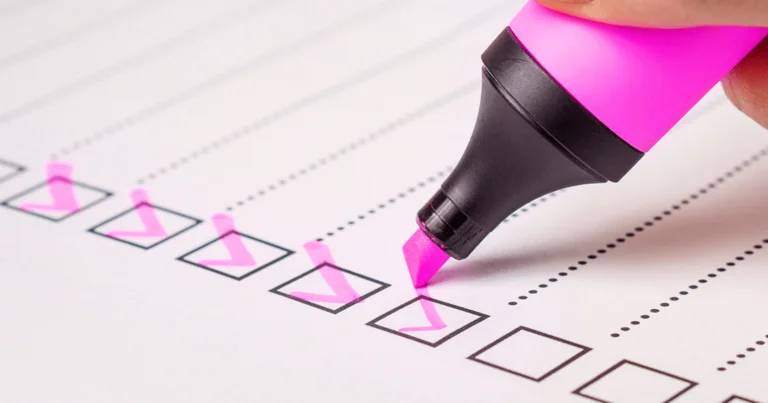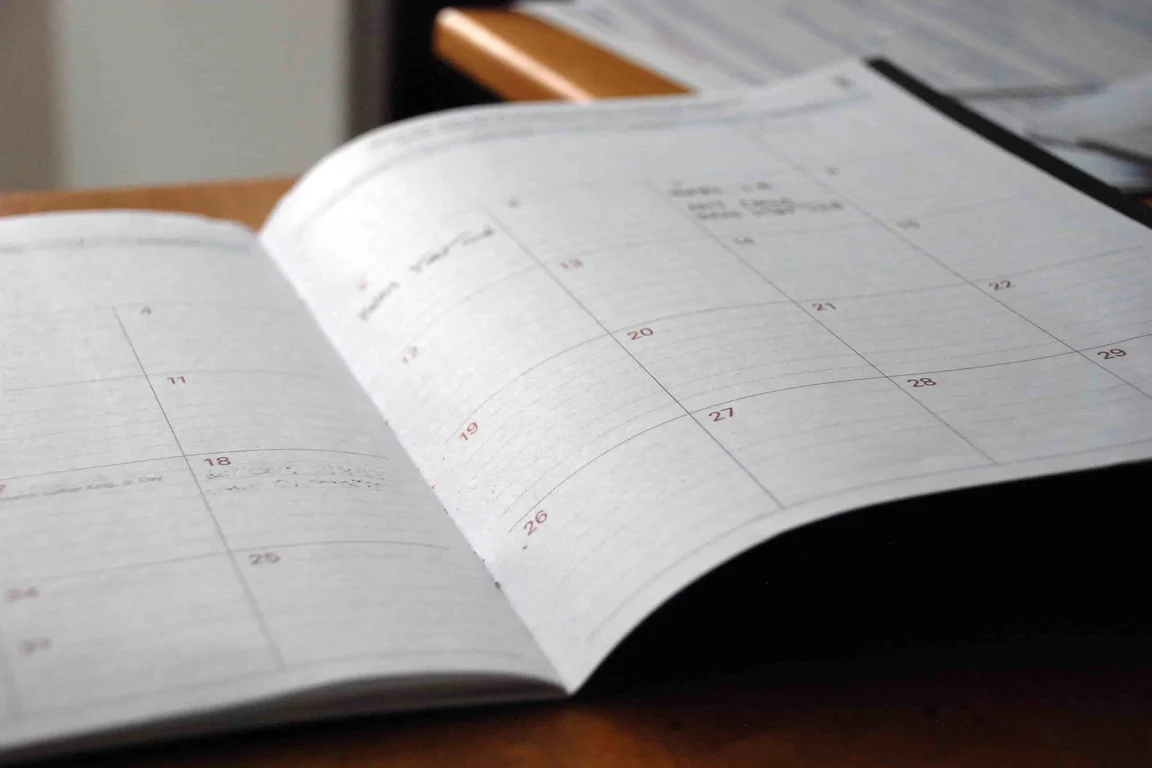We understand that no two events are the same, but whether you’re planning a conference or a meeting, treat this as your checklist on how to plan an event successfully, on budget, on time, and to your liking.
Table of Contents
- What is an Event Plan?
- Where to Start with Event Planning
- How to Plan an Event: Step By Step Checklist
- Need Help Planning Your Event?
- FAQs
What is an Event Plan?
An event plan is a comprehensive outline of all the details involved in hosting an event.
An effective event plan will include details such as:
- The date and time of the event
- Budget allocation
- Vendor contracts
- Marketing strategy
- Logistics (transport links and accommodation)
- Entertainment options
- Security measures
- Contingency plans
The Role of an Event Planner
Event Planners and Event Managers play a vital role in the success of any event - from start to finish. They work to understand the needs and preferences of attendees, allocate budgets, create timelines, select appropriate venues, manage logistics and ensure that everything runs smoothly on the day.
Event planners must also consider factors such as weather conditions and potential emergency situations when organising an event.
Where to Start with Event Planning

From the get-go, you need to set realistic goals when planning an event.
A good list of initial questions to ask yourself when starting the event planning process is:
What’s your event all about?
Who is the target audience?
What are you trying to achieve with the event?
What is your budget?
From this, you can start to build a picture of what type of event you’re looking to plan and where to start. These questions will help you to visualise who you’re trying to reach and how best to accommodate this audience.
Once you’ve got a rough idea of what event you’re looking to plan, you can start to make plans.
How to Plan an Event: Step By Step Checklist

Here is the Make Venues checklist to help you plan an event successfully. We hope the following serves as a starting point for what should hopefully be an event to remember.
1. Develop Ideas and Create a Vision
Making notes of all the things you want to have at your event will help create your vision. You should start by noting down all of the things that you want to have at the venue, such as catering and entertainment.
Establishing exactly what kind of things you want at your event is a great way to start thinking about finances too - understanding your budget is crucial to planning a successful event.
2. Create an Action Plan for your Event
Is your Vision Achievable?
Take the notes you’ve just made on what you want your event to include, and ask yourself if each aspect of your vision is achievable and subsequently how it can be achieved.
Set Yourself Deadlines
Setting rough deadlines for how long you think each task should take is also good practice. However, it’s a good idea to be generous with your time and always give more time than you think you’ll need for each task.
Create an Event Planning Spreadsheet
We would recommend collating all of the tasks, the person assigned to them, and the rough time it will take to complete in a spreadsheet. Having a visual representation of all tasks and their progress will help you understand how far away from finishing the planning you are.
3. Plan Your Event Around your Budget

Establish Your Budget Straight Away
Establishing a budget for your event should be a priority. Budgeting is a necessary step when planning any event. It’ll help prevent any unwanted surprises when the big day comes around.
Ensure Your Budget is Realistic
Make sure that your vision is achievable financially first. Unfortunately, it’s rare that you’ll be able to plan an event for free, so it’s crucial that you have enough to finance what you’re planning.
Just like we advise planning for the maximum time something might take to be completed, you should do the same with your budget.
If you’re not sure how much things will cost, do your best to find a minimum and maximum cost and budget more towards the maximum. That way you’ll prevent any heart in your mouth surprises when you start paying money out.
4. Find the Perfect Venue
Booking Your Venue
When looking at planning an event, make sure the venue you’re looking at hiring can accommodate everything you would need. Is there enough space? Is your seating arrangement suitable? Is there an outdoor area?
Venue Accessibility
One important thing to consider when looking at venues is accessibility. You don’t want your guests to have a hard time finding your event, so choose a venue that’s easy to locate.
Make sure when looking at venues that the venue is relatively simple to find for both those that are driving and those that might arrive by public transport.
You should also ensure that physically disabled people can comfortably get around the venue and, if there are any speeches or presentations, be sure that these are made accessible for those with hearing and visual impairments.
5. Build your Team

Consider if You’ll Need a Team
Think you’ll need reinforcements to make your event plans a reality? Depending on how confident you feel in planning your event, you might need to assemble a team to help it all come together smoothly.
How Many People Should You Hire?
There are no hard and fast rules for how many people you should have in your team, but the number of guests, the size of your venue, and how much time you have to plan it will give you an idea of how much support you need.
Help on the Day
If you need additional staff to help you on the day like waiting and bar staff, then you can see if the venue can support you with this.
If not, then it might be a case of outsourcing them from a third party, which is something you’d have to factor into your budget.
6. Marketing and Promoting your Event

With everything planned and ready to go, the only thing left to do before the big day is the marketing and promotion of your event.
Will your Event be Open or Invite-only?
This is a key step in helping raise awareness for your event. Firstly, however, you’ll have to decide whether you want your event to be open to the public, or if you’d prefer it to be invite-only.
Utilise Social Media
If you decide to host an open event, then marketing and promotion are absolutely essential as this is the only way that potential guests will know about your event.
Social media is your best friend when it comes to marketing an event. Creating an event page on Facebook for example allows you to invite guests, and for the page itself to be shared, reaching a larger audience.
Get Creative with Graphics
If you’re setting the event up yourself and have graphic design or illustration experience, then developing some branding for your event is a great way of engaging your guests and getting them excited for the event.
If this event is on behalf of a business, check with them how they would like the event marketed and you can go from there.
Multiple Events?
If your event is the latest in a series of events, then promote the next one using positive reviews from the last one. Hearing about what a great time all the guests had at your last event will do wonders for your event.
Sharing pictures from previous events is a fantastic way of building hype around your event and making sure people won’t want to miss out.
Need Help Planning Your Event?
Planning an event is by no means an easy feat, but we hope that our event planning checklist has helped you understand the breadth of what is required. If you need assistance in planning your event Make Venues provide an event management service as standard with our venue hire.
Each one of our award-winning venues in London, Bristol and Leamington Spa has a dedicated team on call to help you plan and execute your vision without a hitch.
Contact our team today on 0808 168 5876, or get in touch via our enquiry form for more information on planning an event.
FAQs
What Does Event Management Entail?
Event management involves planning, organising and coordinating events such as meetings, conferences, trade shows, fairs, weddings, parties and other celebrations. Event planners are responsible for bringing together all the necessary elements that make an event successful. They work closely with clients to understand their vision and goals for the event before beginning to plan, working from start to finish to help the event be a success.
Why is Event Planning Important?
Event planning is a vitally important aspect of any successful event, whether it's a corporate conference or a wedding celebration. Event planners are responsible for overseeing every detail of an event, from choosing the venue to coordinating catering and entertainment. Without expert event planning, even the most well-intentioned events can quickly turn into logistical nightmares.
